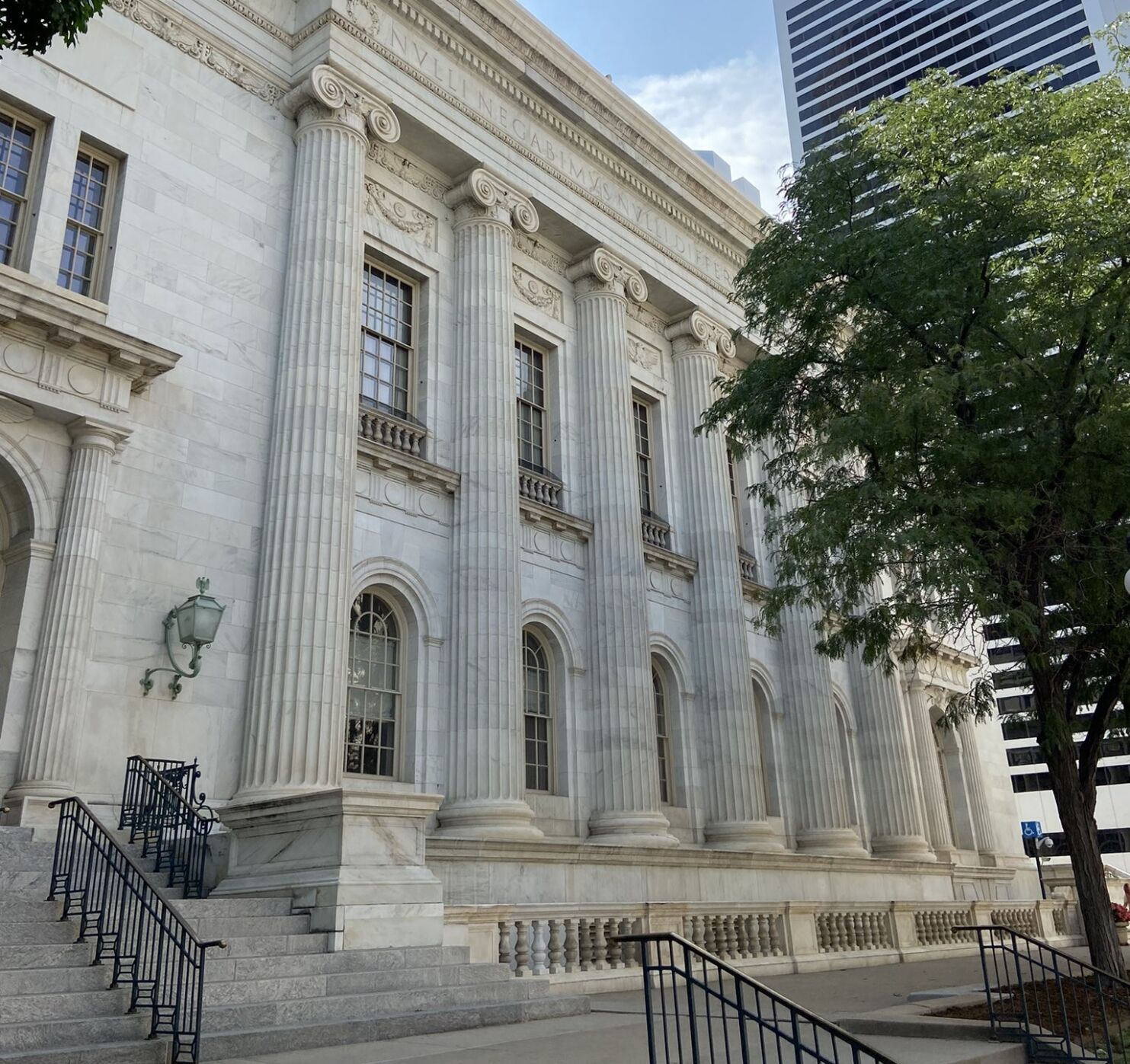10th Circuit finds no merit to First Amendment claims of Northglenn mosque protestor

The federal appeals court based in Denver agreed Wednesday that a man convicted of violating a sidewalk obstruction ordinance while holding an “Islam Kills” sign outside a Northglenn mosque failed to show his First Amendment rights were violated.
Richard Roy Blake filed a federal lawsuit seeking to declare as unconstitutional the portion of the Northglenn Municipal Code that makes it unlawful to place on streets or sidewalks “any object which causes or tends to cause the obstruction.”
A Northglenn officer cited Blake under the ordinance as he stood outside Masjid Ikhlas – Metropolitan Denver North Islamic Center with signage critical of Islam. Although Blake objected to the “obviously unconstitutional legal theory” that his presence obstructed the sidewalk, the U.S. Court of Appeals for the 10th Circuit agreed the ordinance was aimed at a legitimate need to regulate obstructions without targeting any speech.
“The ordinance prohibits the obstruction of the sidewalk regardless of the type of object used,” wrote Judge Scott M. Matheson Jr. in the court’s Jan. 25 order. He noted the original police report, which Blake submitted to the 10th Circuit, alleged that “in order to walk around (Blake) you had to step into the road.”
For years, Blake had shown up to “open houses” at the mosque, reportedly hoping to find “moderate” Muslims who were receptive to his concerns about the treatment of women and Christians under some Islamic regimes. He told the 10th Circuit he wanted to “act as a truth squad” to warn attendees about Masjid Ikhlas’s “true agenda.”
On Jan. 4, 2020, Blake was outside the mosque with a sign that read “Equal Rights for Christians in Islamic Nations” on one side and “Islam Kills” on the other. A witness called police after seeing a pedestrian and a bicyclist move to avoid Blake and a vehicle stopping to talk with him.
An officer arrived and cited Blake under the Northglenn code. After a trial in municipal court, a jury convicted him for violating the sidewalk obstruction ordinance. Blake then appealed to Adams County District Court, arguing the ordinance was unconstitutionally vague and also criminalized protected First Amendment activity.
“Mr. Blake admitted to standing on the sidewalk while holding a large sign. He admitted to talking with the occupants of a truck that stopped in the roadway for ‘no more than 5 minutes.’ He admitted he was trying to hand leaflets to pedestrians as they passed by him on the sidewalk,” wrote Judge Teri L. Vasquez, finding the ordinance as enforced against Blake did not pertain to the content of his speech and was instead focused on the obstruction.
Blake appealed to the Colorado Supreme Court and U.S. Supreme Court, which both declined to review the case. In February 2021, Blake filed suit in federal court with similar allegations.
U.S. District Court Judge Regina M. Rodriguez dismissed his lawsuit, citing the legal doctrine prohibiting federal courts from reviewing state court decisions and otherwise agreeing Blake’s First Amendment claim failed.
“The U.S. Supreme Court has found ordinances directed towards regulating or assisting the flow of traffic on a public sidewalk to be permissible and in the interest of the public,” she explained in March 2022.
Once again, Blake appealed, accusing the police officer of fabricating “phantom pedestrians, bicycles, etc.” and disputing the idea that an “object” under the municipal code could encompass him holding a sign.
The 10th Circuit disagreed.
“Because a jury convicted Mr. Blake, he cannot plausibly allege there was no probable cause to issue the citation,” said Matheson, writing for the three-judge appellate panel. While the panel believed Rodriguez misapplied the doctrine prohibiting federal review of state court decisions, it otherwise found no merit to Blake’s claim that the ordinance was unconstitutionally vague or so broad that it criminalized speech.
According to The Commerce City Sentinel Express, the Northglenn City Council in 2021 enacted a buffer zone for demonstrations outside of religious facilities in reaction to Blake’s protests and the accompanying responses from law enforcement. Blake filed a defamation lawsuit against the reporter, but a Denver judge threw out the allegations in September.
The case is Blake v. Hong et al.













